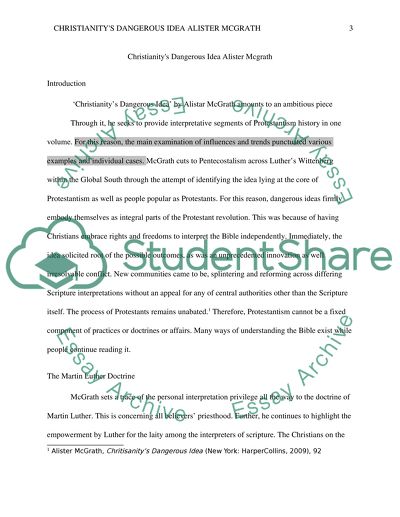Cite this document
(“Christianity's Dangerous Idea Alister Mcgrath Book Report/Review”, n.d.)
Retrieved from https://studentshare.org/religion-and-theology/1629232-christianitys-dangerous-idea-alister-mcgrath
Retrieved from https://studentshare.org/religion-and-theology/1629232-christianitys-dangerous-idea-alister-mcgrath
(Christianity'S Dangerous Idea Alister Mcgrath Book Report/Review)
https://studentshare.org/religion-and-theology/1629232-christianitys-dangerous-idea-alister-mcgrath.
https://studentshare.org/religion-and-theology/1629232-christianitys-dangerous-idea-alister-mcgrath.
“Christianity'S Dangerous Idea Alister Mcgrath Book Report/Review”, n.d. https://studentshare.org/religion-and-theology/1629232-christianitys-dangerous-idea-alister-mcgrath.


